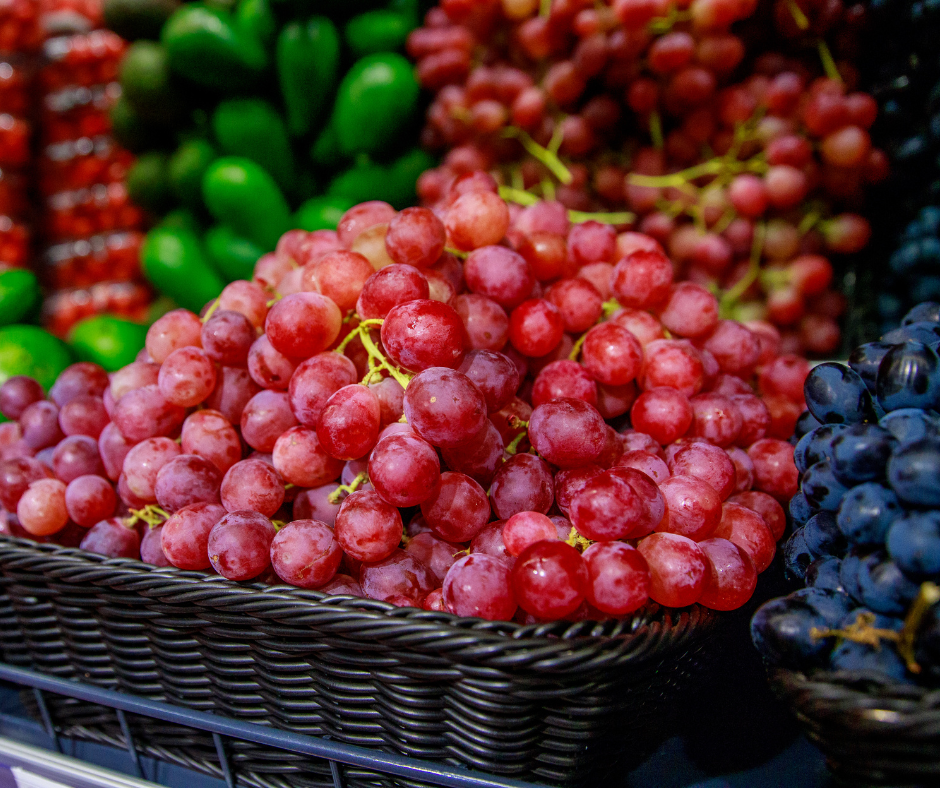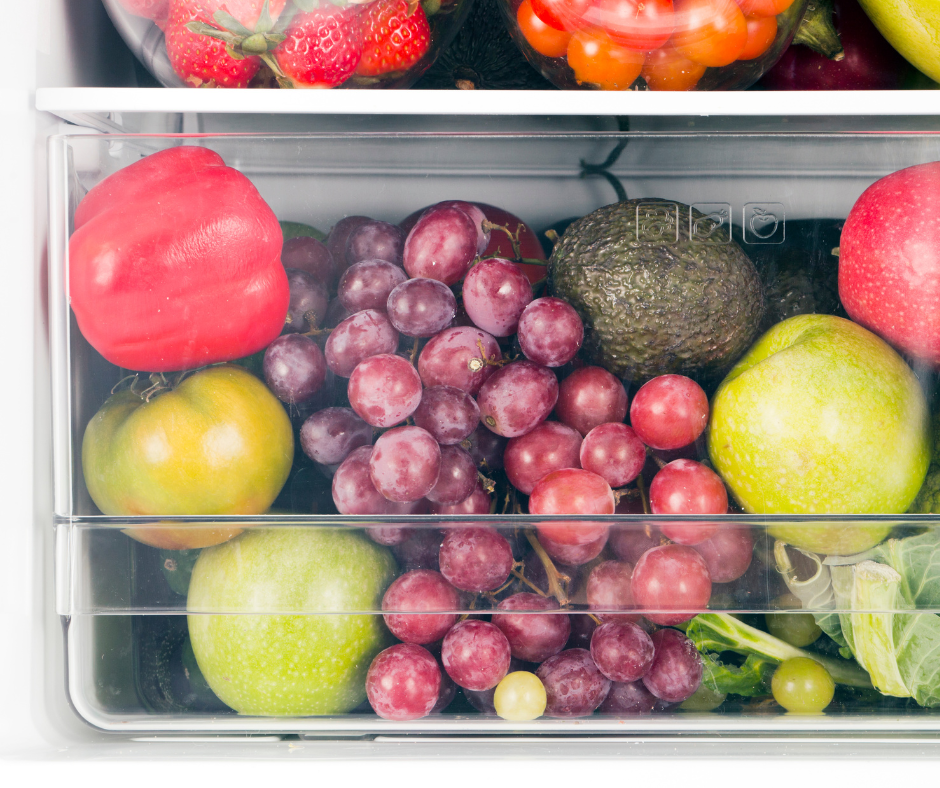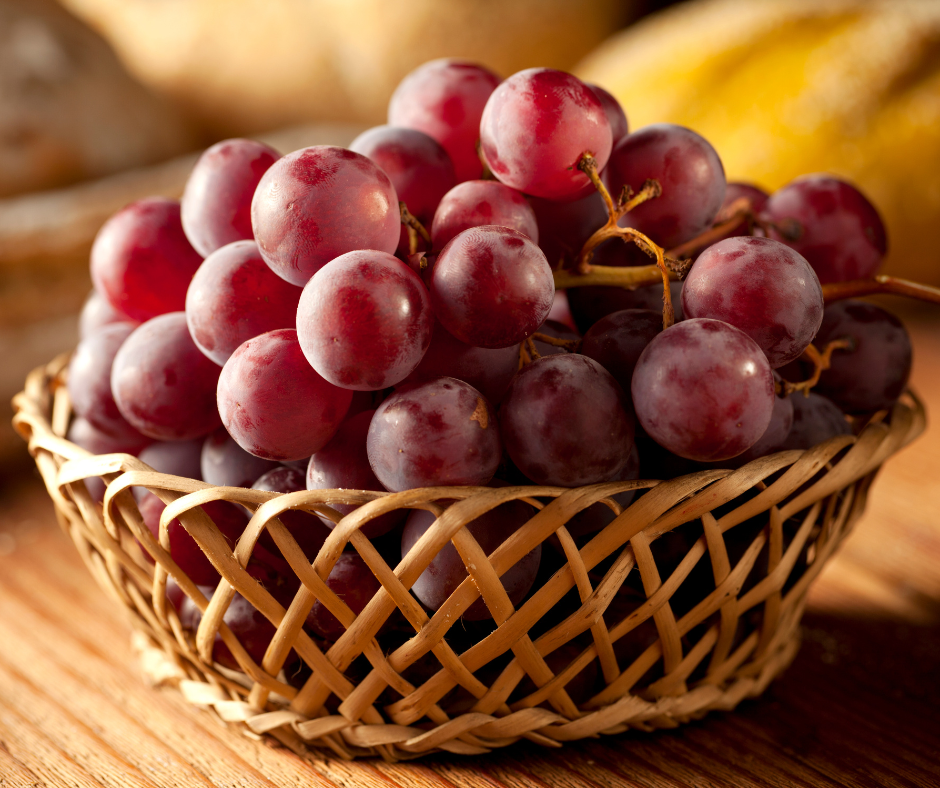Introduction
When it comes to storing fresh grapes, there is more to it than simply placing them in the fridge. Proper storage is essential to enjoy the full flavor and freshness of these juicy fruits. Understanding the art of ‘How To Store Grapes?‘ is crucial from vine to table.
The Importance Of Proper Grape Storage
Proper storage is vital to maintaining the quality and flavor of fresh grapes. Grapes are highly perishable and can deteriorate quickly if not stored correctly. By storing them properly, you can extend their shelf life and enjoy their delicious taste for longer.
The Impact Of Improper Storage On Grape Quality
Improper storage can have a significant impact on the quality of grapes. If exposed to moisture or improper temperature, grapes can become moldy or develop a shriveled texture. Inadequate storage conditions can also cause grapes to lose their flavor and become sour or bitter. By incorrectly storing grapes, you risk wasting these precious fruits and missing their optimal taste.
The Goal Of This Guide: Maximizing Grape Freshness
The ultimate goal of this guide is to help you maximize the freshness and flavor of your grapes. Following proper storage techniques, you can ensure your grapes remain plump, juicy, and full of natural sweetness. Whether you have picked them fresh from the vine or purchased them at a store, these tips will help you make the most of your grapes.
To ensure the optimal storage of fresh grapes, here are the key recommendations on ‘How To Store Grapes?’:
- Temperature: Grapes should be stored in the refrigerator between 32 and 45 degrees Fahrenheit (0-7 degrees Celsius). Avoid placing them in the coldest part of the fridge, such as the back of the bottom shelf, as this may cause freezing and damage to the grapes.
- Humidity: Grapes prefer higher humidity levels to prevent them from drying out. Please keep them in a perforated plastic bag or a damp paper towel to maintain the required moisture. However, ensure that the grapes are not in direct contact with the water.
- Separation: Store grapes separately from other fruits and vegetables. Grapes release a small amount of ethylene gas, which can accelerate the ripening process of nearby produce. This can lead to premature spoilage.
- Avoid washing: It is best to wash grapes just before consuming them. Washing them before storage can increase their moisture content and accelerate decay.
- Inspect regularly: Check your stored grapes regularly and remove any damaged or moldy ones immediately to prevent spoilage from spreading to the rest of the bunch.
By following these guidelines, you can savor the freshness of your grapes for a more extended period. Now, you can confidently enjoy these sweet and refreshing fruits in various recipes or simply as a healthy snack straight from the fridge.
Factors Affecting Grape Storage
When it comes to storing fresh grapes, proper care and attention are essential to maintain their freshness and flavor. Understanding the factors that affect grape storage can help you enjoy these juicy fruits longer.
Temperature And Humidity Requirements For Grape Preservation
One of the critical factors in grape storage is controlling temperature and humidity. Grapes are sensitive to changes in temperature and can lose their quality if exposed to extreme conditions. The ideal temperature for storing grapes is around 30 to 32 degrees Fahrenheit (0 to 2 degrees Celsius), with a relative humidity level of 90-95%.
Refrigeration is the best method to maintain these conditions. To minimize moisture loss, you can store your grapes in the refrigerator’s fruit drawer or airtight containers. Avoid washing the grapes before storing them, as water can accelerate spoilage.
The Role Of Ventilation In Maintaining Grape Freshness
Proper ventilation is another crucial aspect of keeping grapes fresh. Adequate air circulation helps prevent moisture buildup and reduces the risk of mold or bacterial growth. If you’re storing grapes in the refrigerator, avoid sealing them in airtight bags. Instead, use perforated bags or store them in an open container to allow air to circulate.
Avoiding Contact With Smelly Foods To Prevent Flavor Absorption
Grapes have a delicate flavor profile and can absorb odors from their surroundings. To prevent unwanted flavor absorption, it’s crucial to store grapes away from strong-smelling foods like onions, garlic, or strongly flavored herbs. These odors can transfer to the grapes, altering their taste and aroma.
It’s also a good idea to store grapes separately from other fruits and vegetables, as some of them release ethylene gas, accelerating the ripening process of grapes.
By following these simple guidelines, you can maximize the shelf life of your grapes and enjoy them at their peak quality. Here’s a summary of the key points to remember:
| Key Point | Explanation |
|---|---|
| Temperature and humidity | – Keep grapes in the refrigerator at around 30 to 32 degrees Fahrenheit (0 to 2 degrees Celsius), with a relative humidity level of 90-95%.
|
| Ventilation | – Ensure proper air circulation to prevent moisture buildup and reduce the risk of mold or bacterial growth.
|
| Avoid contact with smelly foods. | – Store grapes away from strong-smelling foods to prevent flavor absorption.- Keep grapes separate from other fruits and vegetables that release ethylene gas, which can accelerate the ripening process of grapes. |
By paying attention to these factors, you can extend the lifespan of your grapes and savor their freshness and flavor from vine to table.
How To Store Grapes? – Best Practices For Grape Storage
Proper techniques can make a significant difference in preserving the quality and extending the shelf life when you learn ‘How To Store Grapes?’. Whether you have harvested grapes from your backyard vineyard or purchased them from a local store, here are some best practices to ensure your grapes stay fresh and delicious from vine to table.
Utilizing The Refrigerator To Maintain The Ideal Storage Conditions
Refrigeration is the most effective way to store grapes for an extended period. Storing them at temperatures between 30 and 32°F (-1 and 0°C) allows you to slow the ripening process and keep the grapes fresh for up to two weeks. However, it’s important not to wash the grapes before storing them as moisture can accelerate spoiling. Instead, rinse them just before consuming them.
For optimal freshness, it is recommended to store grapes in a perforated plastic bag or a loosely closed plastic container to maintain humidity and prevent them from drying out. Additionally, avoid storing grapes near foods with strong odors, as grapes absorb odors easily.
The Benefits Of Using The Original Ventilated Bag Or Plastic Box
Many grape varieties are sold in their original ventilated bags or plastic containers. These packaging options have small holes that allow for proper air circulation, preventing moisture buildup and maintaining freshness. If you have grapes in their original packaging, leave them as is best and store them directly in the refrigerator.
If the original packaging is unavailable, you can transfer the grapes to a perforated plastic bag or a plastic container with small holes. Remove any spoiled or damaged grapes before transferring them to the new container.
Alternative Options For Well-ventilated Containers
If you prefer to store grapes in well-ventilated containers other than plastic bags or boxes, you can consider a few alternatives. One option is to use a breathable mesh bag or a perforated produce bag. These bags allow air circulation while protecting the grapes from direct contact with other fruits or vegetables.
Another alternative is to use a colander or a fruit basket with holes. These containers allow for proper airflow, preventing moisture buildup and extending the shelf life of your grapes.
In conclusion, proper storage is crucial to maintain the freshness and quality of grapes. Refrigeration at the appropriate temperature, using original ventilated packaging or perforated containers, and avoiding strong odors are key to ensuring your grapes remain delicious from vine to table. So the next time you have a bunch of grapes, follow these best practices to enjoy their juicy goodness for an extended period.
Extending The Shelf Life Of Grapes
Proper storage is key when it comes to enjoying the delicious freshness of grapes. From when they are harvested to when they’re on your table, understanding the art of storing fresh grapes can help maximize their shelf life and flavor.
Properly Washing And Drying Grapes Before Storage
Before storing your grapes, it’s important to give them a thorough wash. Rinse them gently under cool water to remove any dirt, debris, or pesticides that may be present. Avoid harsh soaps or detergents as they can leave a residue on the grapes.
After washing, take the time to dry the grapes completely. Excess moisture can cause the grapes to spoil more quickly. You can use a clean kitchen towel or paper towels to pat them dry gently. Ensure that no water droplets remain on the grapes before proceeding to the storage process.
The Significance Of Avoiding Moisture And Creating An Airtight Environment
Moisture is the enemy when it comes to storing grapes. Excess moisture can lead to the growth of mold and bacteria, causing the grapes to spoil faster. To avoid this, storing grapes in a dry environment is crucial.
Consider storing your grapes in a perforated bag or container. This allows for air circulation and reduces excess moisture buildup. Additionally, you can place a paper towel or a layer of absorbent material at the bottom of the container to absorb any excess moisture that may accumulate.
Creating an airtight environment is also essential. Oxygen exposure can accelerate the ripening process and cause the grapes to deteriorate more quickly. Consider using airtight containers or resealable bags to store your grapes. This will help maintain their freshness and prolong their shelf life.
Additional Tips For Maximizing Grape Longevity
Here are some additional tips to guarantee the longevity of your grapes:
- Store them in the refrigerator: Grapes are best stored in the refrigerator, as the cold temperature helps slow the ripening process. Please place them in the fruit or vegetable drawer, where the humidity levels are typically higher.
- Do not wash grapes before refrigeration: It’s best to avoid washing them unless your grapes are dirty or need immediate consumption. The moisture from washing can contribute to spoilage.
- Avoid storing grapes near strong-smelling foods: Grapes can absorb odors easily, so it’s important to store them away from foods with strong smells, such as onions or garlic.
- Avoid overcrowding: Proper airflow is essential in maintaining grape freshness. Avoid overcrowding the grapes in the storage container to allow for adequate circulation.
By following these simple steps and storing your grapes properly, you can extend their shelf life and enjoy their juicy goodness for longer. So go ahead and savor the flavor of fresh grapes by mastering the art of proper storage!
FAQ: How To Store Grapes? – From Vine to Table: The Art of Storing Fresh Grapes
Q: How should I store grapes to keep them fresh?
A: To keep your grapes plump, crisp, and tasty, it’s essential to store them properly. The best place to store fresh grapes is in your refrigerator.
Q: Can grapes be stored in the fridge?
A: Yes, your refrigerator is the ideal place to store fresh grapes.
Q: What temperature should the fridge be set to for grape storage?
A: Grapes thrive at temperatures of around 30-32 degrees Fahrenheit with 90-95% humidity. So, you can place them in the coldest part of your fridge, typically the crisper drawer.
Q: How should I store cut grapes?
A: If you have cut grapes, store them in an airtight container in the refrigerator. They can last for up to 48 hours this way. However, if you notice the edges drying up and browning, it’s time to use them.
Q: Are ventilated bags or plastic boxes suitable for storing grapes?
A: Absolutely! In fact, the ventilated bag or plastic box that the grapes came in is ideal for storage. Grapes need some breathing room to last longer, and an airtight container creates humidity, which can lead to spoilage.
Q: What if I don’t have the original packaging for the grapes?
A: If you have already discarded the original packaging, any well-ventilated container will do. Just make sure it allows for some airflow.
Q: Should I store grapes next to other foods?
A: It’s best to avoid storing grapes next to strong-smelling foods like onions or fish. Grapes can absorb odors easily, which can impact their flavor.
Conclusion
Now you know ‘How To Store Grapes?’. Storing fresh grapes properly is crucial for preserving their flavor, texture, and overall quality. By following the right techniques, you can ensure that the grapes remain fresh and delicious for longer. Whether you are a grape enthusiast or enjoy a sweet and juicy snack, these storage tips will help you make the most of your grapes from vine to table.
Importance Of Following Proper Grape Storage Techniques
Understanding the importance of proper grape storage techniques is essential for maintaining the best quality of this fruit. When grapes are stored correctly, they retain their sweetness and juiciness for longer. Proper storage also helps prevent deterioration and spoilage, allowing you to enjoy them at their peak flavor. By following these techniques, you can extend the shelf life of your grapes, reducing waste and ensuring that you can savor their freshness for as long as possible.
Recap Of Key Points For Storing Fresh Grapes
To store fresh grapes successfully, it is important to keep the following key points in mind:
- Sort and remove any damaged or spoiled grapes before storing them.
- Keep grapes unwashed until ready to eat or use.
- Store grapes in a perforated plastic bag or a ventilated container to maintain airflow.
- Store grapes at around 32-35°F (0-2°C) in the refrigerator.
- Avoid storing grapes near foods with strong odors that can be absorbed.
By following these guidelines, you can maximize the freshness and quality of your grapes, ensuring a delightful eating experience every time.
Enjoying The Best Quality Grapes From Vine To Table
By storing fresh grapes properly, you can enjoy the best flavors and textures the fruit offers. Whether including them in your favorite recipes or simply snacking on them, properly stored grapes will elevate your culinary experiences. Remember to handle and store your grapes carefully, paying attention to temperature, moisture levels, and potential sources of contamination. With these tips in mind, you can savor the deliciousness of fresh grapes from the vine to your table.

Deb Carlson at Crosslake Coffee: Join Deb at Crosslake Coffee for a delightful blend of community, caffeine, and creativity. Discover the cozy ambiance and warm hospitality that make this local coffee shop a beloved gathering spot. From expertly crafted espresso drinks to mouthwatering pastries, Deb invites you to savor every sip and bite. Stay connected with the latest updates on specials, events, and live music performances by following Deb Carlson at Crosslake Coffee on social media. Embrace the vibrant online community and share your love for great coffee and good company with fellow enthusiasts. Don’t miss out on a moment of the Crosslake Coffee experience – connect with Deb on social media today.



